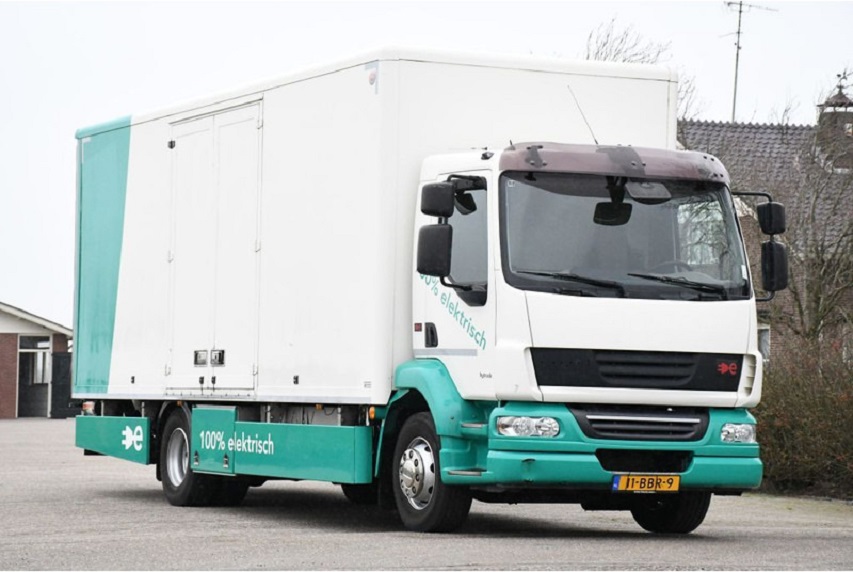03
April
Factors To Consider When Deciding Between Renting or Leasing Electric Trucks
When it comes to transitioning to electric trucks, businesses often face the decision of whether to rent or lease. Each option comes with its own set of advantages and considerations that should be carefully weighed. In this blog, let's explore the key factors before renting or leasing electric trucks from a truck rental company.
Key factors to consider when deciding between renting and leasing
Cost Consideration
Renting electric trucks can be a cost-effective solution for businesses that have occasional or seasonal transportation needs. Renting allows your businesses to access electric trucks on a short-term basis without having a long-term lease commitment. Renting also eliminates the need for upfront costs associated with leasing, such as down payments and monthly instalments.
However, businesses must consider the rental costs over time. While renting may be cheaper in the short term, the cumulative rental costs can add up, making leasing a more cost-effective option in the long run. In addition, rental rates may vary depending on demand and availability, which could impact the overall cost-effectiveness of renting electric trucks.
Maintenance and Repairs
Another important factor to consider when deciding between renting or leasing electric trucks is the responsibility for maintenance and repairs. When you are renting electric trucks, the rental company is typically responsible for regular maintenance and repairs. The rental plan can save you time and money, as you don't have to worry about finding qualified technicians or purchasing spare parts.
On the other hand, when leasing electric trucks, the lessee is usually responsible for maintenance and repairs. While this may require additional resources and expertise, it also allows your businesses to have more control over the maintenance schedule and ensures that the trucks are properly cared for. In addition, you can negotiate maintenance agreements with the leasing company to cover certain repairs and services.
Ownership and depreciation
Ownership is another factor to consider. When you rent a truck, you don't own the vehicle and don't have to worry about its depreciation. This can be advantageous if you want to avoid the risks associated with owning a depreciating asset.
On the other hand, leasing electric trucks allows you to own the vehicles or purchase them at the end of the lease term. If you foresee a long-term need for EV trucks and want the option to own them in the future, leasing may be a better choice.
Understanding the potential tax and financial implications
Another factor to consider when deciding between renting and leasing electric trucks is the potential tax and financial implications. Consult with a tax professional or financial advisor to understand the tax benefits and deductions associated with renting or leasing electric trucks. Depending on your location and the specific tax regulations in place, you may be eligible for certain incentives or deductions that help offset the costs of renting or leasing. Understanding the financial implications will allow you to make a more informed decision based on the overall cost-effectiveness of renting or leasing.
Environmental Impact
As we all know, businesses are increasingly looking for sustainable transportation solutions. Electric trucks offer a greener alternative to traditional diesel or gasoline-powered trucks as they produce zero tailpipe emissions. Both renting and leasing electric trucks contribute to reducing greenhouse gas emissions and improving air quality.
However, businesses should also consider the environmental impact of the rental or leasing process. For example, rental companies may have to transport the trucks to different locations, which could result in additional emissions. Similarly, the manufacturing and disposal of electric trucks should be considered when evaluating their overall environmental impact.
Evaluating your business needs and priorities
Before deciding, it's important to evaluate your business needs and priorities. Consider the specific requirements of your operations and how the choice between renting and leasing electric trucks will impact your business. Think about factors such as the volume of transportation required, the frequency of usage, and the flexibility needed to adapt to changing demands. Understanding your business needs will help you make an informed decision that aligns with your goals.
Once you have a clear understanding of your business needs, assess the available truck rental companies and their offerings. Research different truck rental companies in your area and compare their services, rates, and customer reviews.
Look for companies that have a good track record of providing reliable and well-maintained electric trucks. Consider factors such as the variety of truck models available, the rental terms and conditions, and the level of customer support provided. A thorough assessment of the available options will help you make an informed decision.


Comments